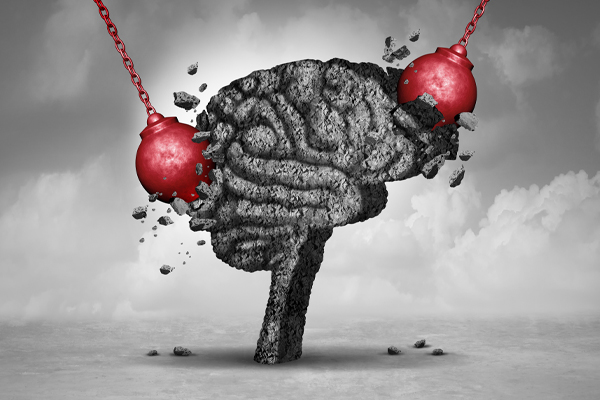TMJ Treatment - Headaches and Migraines
Are you often experiencing migraines and headaches?
Migraines and headaches affect the head, but the cause could be coming from the jaw area.
The temporomandibular joint (TMJ) connects the jaw to the skull. It allows you to speak, chew, eat, yawn, and move your jaw from side to side.
When your TMJ isn’t functioning properly, the discomfort can travel to other parts of the skull and result in migraines or headaches.
TMJ Migraines

Migraines are moderate to severe headaches that anyone may experience. Symptoms and stages can vary per individual.
A migraine can come with nausea, and sensitivity to light, sound, and smell. You may also lose appetite and experience numbness on one side of your body. Symptoms may come hours or days before the attacks.
Episodes often start as a mild pain aggravated by physical movements. They can affect one side of your head or your entire head. After the attacks, you may also experience more symptoms, such as muscle pain and exhaustion.
The exact cause of migraines remains unknown, but if it’s connected to TMJ disorders, it can be due to physical stress.
When jaw muscles tighten, the pain can radiate to your head and cause headaches. Episodes can occur when you grind your teeth or use your jaw joint and muscles. The pain can also reach your ears, teeth, and shoulders.
TMJ Headaches

Headaches related to TMJ disorders can also be non-migraine. If you’re not experiencing common symptoms linked to migraines, you may be experiencing headaches alone.
Usually, non-migraine TMJ headaches occur only on one side of the head, and the pain isn’t throbbing. They can be due to inflamed muscles and tissues around the jaw. They can also be more prominent in the area where the issue is.
While they have different symptoms, migraines and non-migraine headaches can be triggered by TMJ problems. Hence, addressing TMJ problems can also help ease them.
Potential causes of TMJ problems
TMJ disorders can be caused by various factors, including the following:
- Teeth grinding and clenching
- Trauma or physical injury
- Bite issues
- Misaligned teeth
- Jaw misalignment
- Arthritis
- Osteoporosis
Treating TMJ Migraines and Headaches

Migraines and headaches may be related to your temporomandibular joint if usual treatments don’t work for them, such as over-the-counter medications for headaches.
Another sign they may be connected to your TMJ is if you’re experiencing attacks after using your jaw.
Having TMJ disorders can worsen migraines and headaches. Seeking treatment for your jaw joints to manage migraines and headaches may not be your first option, but consider doing it immediately.
Treatment options for TMJ Disorders in SE Calgary
Here at Mckenzie Towne Dental in SE Calgary, we provide treatment options for TMJ disorders.
TMJ disorders can be managed by using a removable oral appliance to reduce teeth grinding and clenching. Fixing bite issues or correcting teeth alignment can also help. It depends on your diagnosis.
Let’s find out if TMJ treatments are the right solution for your migraines or headaches. You may finally find relief by restoring balance in your bite, distributing forces equally between all teeth, and reducing tension on your jaw muscles and tissues.
Call us today at (403) 257-1180 to book your visit. Our friendly receptionists are happy to hel you find a schedule that works.

Whether it's a dental emergency in South Calgary or just a regular checkup or cleaning, McKenzie Towne Dental wants to make your experience as comfortable and convenient as possible. Serving McKenzie Towne, Cranston, Auburn Bay, Seton, Copperfield, New Brighton, Mahogany, Inverness, and all of Southeast Calgary
© Copyright 2025 McKenzie Towne Family Dental and Dental Growth Strategies | All Rights Reserved | Powered by Dental Growth Strategies | Disclaimer: Dr. Safi Magharius is a general dentist, not a cosmetic dental specialist. Cosmetic dentistry is not a term/specialty recognized by the Alberta Dental Association & College (ADA&C). Dr. Magharius provides cosmetic dental procedures such as porcelain veneers, dental implant crowns, dental bonding, and teeth whitening as part of his general dentist license.